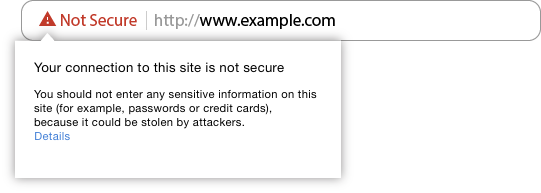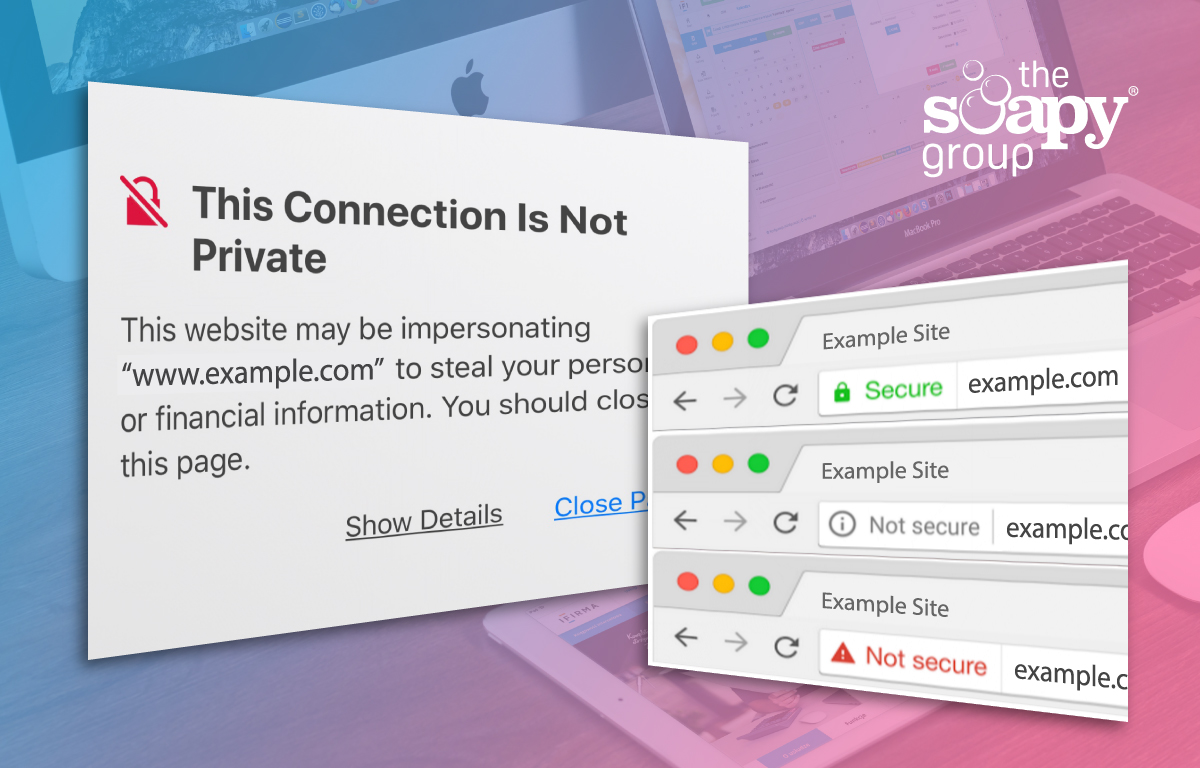From May 2018, your website will need to be GDPR compliant. Act now and make sure you have an SSL certificate.
If your website does not have an SSL certificate, it will be flagged up to visitors as unsafe. This is an aspect of web browsing that aims to protect users and keep personal data safe and secure.
Having an SSL certificate basically means a little green padlock appears at the top of your browser. This informs visitors to your site that it is safe, and personal data is not at risk.

Any website that uses any type of form or asks for information – even a simple contact form or newsletter subscription box – absolutely must have an SSL certificate. It encrypts transmission of the data.
Google has already started to flag up websites without SSL certification with a nasty red warning stating they are “not secure.” The warning can affect traffic to your website, as it tends to put people off visiting. That red warning is designed to get noticed and make you think twice about visiting.

Let’s use online shopping as an example.
How many times have you typed in your name, address, telephone number, debit card number, expiry date or three-digit security code in to a form? More times than you can recall, probably.
When was the last time you looked for the green padlock? We can guarantee, from now on you will always double check.
When you input any sort of information in to a web form on a website without a green padlock at the top, (or without https:// at the front of the web address) your information is passed from computer to computer until it reaches a destination server. Any of those computers can see that information – including all those sensitive numbers and codes you think that only you know. This means your data is unencrypted.
When you type that information in to a “safe” website with the green padlock and https://, your data is made unreadable to everyone except for the destination server. The data is encrypted.
It is thought that Google will flag up to two thirds of the web as unsafe. Contrary to those digital urban myths, Google does actually want to make the web as safe and user friendly as possible, but it is up to businesses to make sure they tick all the right boxes so as not to get penalized.
SSL stands for Secure Sockets Layer. We know that does not really mean a lot to you, other than the fact it can make or break your brand trust. Without it, your reputation could be damaged.
SSL = Trust.
If you wish to find out more about website security and GDPR, call us today on 01759 283102 or email help@thesoapygroup.co.uk.




